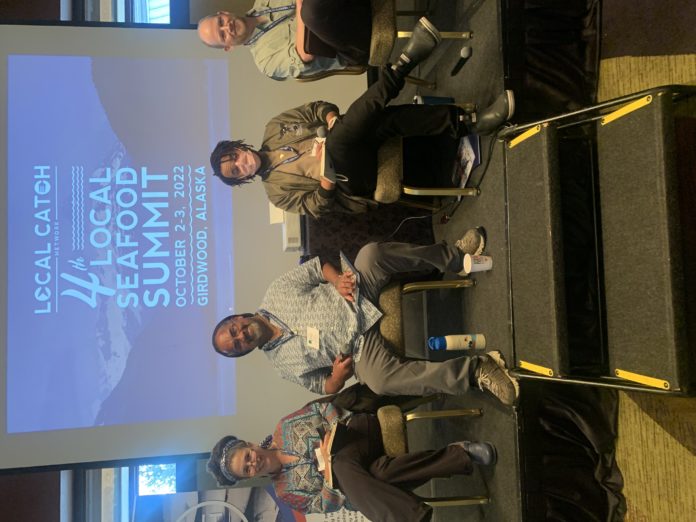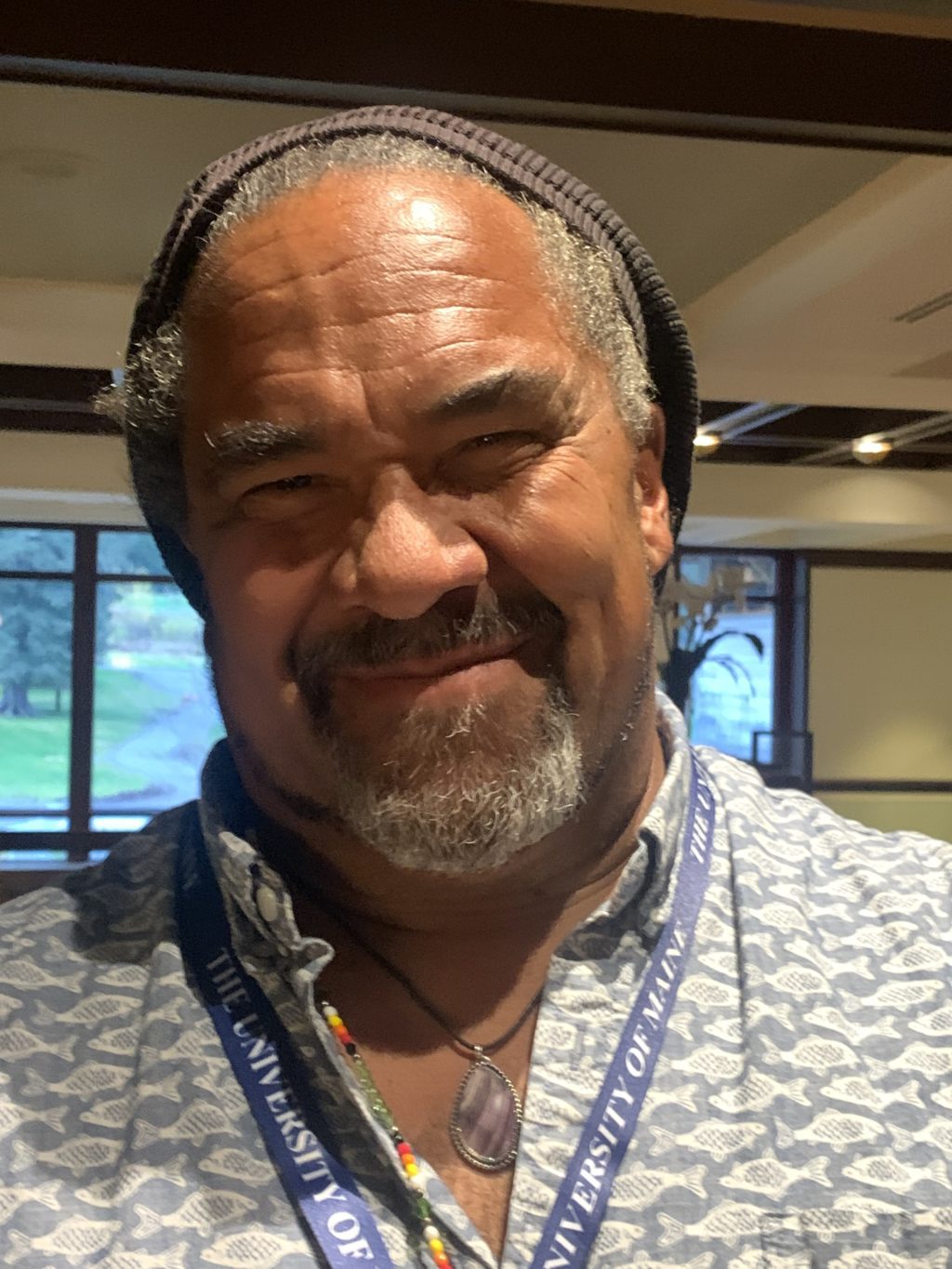
Several dozen small boat harvesters, marketing directors, researchers and fisheries consultants concluded a seafood summit at a Southcentral Alaska ski resort on Monday with optimism spurred by networking to resolve the challenges facing their industry.
“I was hoping what would come out of it would be building power from seaboard to seaboard, bringing people together who are involved in fisheries and the politics that goes with it, to carry good thoughts back with them,” said Melanie Brown, a veteran Bristol Bay setnetter from Juneau and organizer for SalmonState, an initiative that works to promote healthy fish habitat in Alaska.
One of the goals of the fourth Local Seafood Summit, which was held at the Alyeska Resort in Girdwood, was to bring people together to share ideas, Brown said.
“I am confident that some of these people will stay in touch.”
Jason Jarvis, a commercial harvester from Westerly, Rhode Island, who served on the event’s keynote panel, and president of the board of the North American Marine Alliance, also expressed optimism that the networking and sharing of experiences at the two-day summit would bear fruit.

“Everything that went on here I’m in the middle of doing,” said Jarvis, who is also a fishing representative on the Rhode Island Marine Fisheries Council.
A founding member of the Fresh Harvest Kitchen, a fishing and farming cooperative in Rhode Island,
Jarvis spoke of concerns over in-fighting of commercial fishermen.
When corporations got into the fishing industry, as well as the catch share program, people started losing money because they had to buy quota to go fish, he said.
“And corporations were buying up the quota, and now they own it.”
Organizers of the seafood summit had to turn people away after the limit of 170 participants was reached months ago.
“Every time we run it, it has gotten bigger,” said Joshua Stroll, an assistant professor of marine policy, said of the event. Stroll, along with Brown, was one of 13 organizers of the event. One of the best ideas shared by organizers was to bring together people from radically different perspectives, to be openminded and humble and to believe, “that the people you talk to are the most important people in the world,” he said.
During the final hours of the summit, Jarvis advised those in attendance to begin planning for the future of local and regional seafood systems.
“We live in a society where the corporate world has turned us into consumers instead of humans,” he said. “We have all accepted that we are consumers. We are being consumed.”
“There is a lot of power in this room,” Jarvis said. “The connections we’ve made here are powerful. Where do we go from here? What do we do now? How many people know the difference between genetically farmed and wild salmon?”
Commercial fishermen have much in common, advised Andy Olsen, another keynote panelist and executive director of the Native Fishing Association in West Vancouver, British Columbia. “There is less fish for us to fight over. We need to collaborate rather than compete.”
“We need to send a message to NOAA about who we are and what we want,” said panelist Ephriam Froehlich, founder of AKWA-DC LLC, a policy consulting firm focused on fisheries, maritime and the environment. He urged fishing communities to ask NOAA to permit use of funds from the Inflation Reduction Act of 2022 to support fishing communities.
There is strength in numbers,” said panelist Togue Brawn, owner of Downeast Dayboat (Maine Dayboat Scallops Inc.) in Bath, Maine. “We can help each other.”
“Don’t be afraid to charge a lot of money for your vastly superior product. There are a lot of people out there who will pay a lot of money for our products.” And they will pay that price not only for people food, but for nutrition for their pets, she said. “We were selling $6 for one smoked herring for a dog.”
“People want higher quality foods at a reasonable price,” said Dune Lankard, who was born into a fishing family in Cordova and is the founder of several organizations, including the Eyak Preservation Council.
During his keynote address at the opening of the summit, Lankard emphasized the economic and environmental importance of growing kelp to regenerate the area economy.
“We are not alone,” Lankard said. “There are animals out there who are smarter than we are. If we take care of our people, they will be able to stay where they are and feed them where they are.”
Note: Cordova Times reporter Amanda Williams was also at the Local Seafood Summit and will have a detailed report, with photos, on the entire event in next week’s Cordova Times issue.





